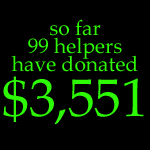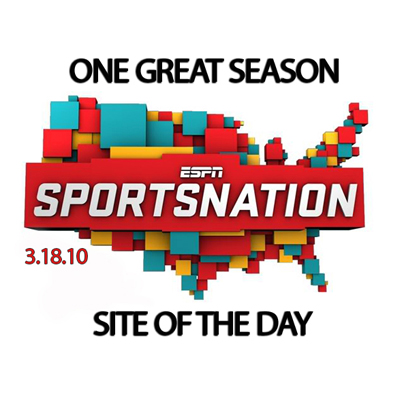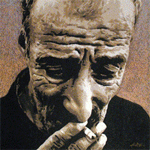Blacks In Sports: Remembering The History
 Monday, February 14, 2011 at 8:50AM
Monday, February 14, 2011 at 8:50AM
By JOHN P. WISE
One Great Season
You'd think a black man in his 50s in 2011 America would have known well the sting of racial hatred since he was old enough to hear. But it took until age 12 before Lorenzo Romar finally learned what such ignorance sounded like when, in 1971, a Little League baseball teammate called him a nigger.
"For him to say that the way he said it, he had to have had some kind of a race issue," said Romar, now 52 and the basketball coach at the University of Washington. "So then I thought that maybe the entire time, maybe those other kids on the team had been looking at my color more than at me as a person."
That Romar grew up in Compton, Calif., close enough to watch the smoke rise from the fires of the Watts riots as a boy in 1965, meant he was raised in a neighborhood where folks looked just like he did. So Romar was shielded from racism in his early years, on the streets, at school and on the playing fields. But in 1971, his local summer league had ended early, sending him looking for more baseball before the new school year started. He found more baseball alright, just not in his own neighborhood, and just not with folks who looked like he did.
"You knew there was racism, but we looked at it like it was a tornado in North Dakota," Romar said in a recent telephone interview. "You felt bad for the people who suffered, but it didn't affect us directly. You'd see it on the news, so you knew it was there. But it never hit home until that day at baseball practice."
Romar said his father frequently told him stories about Jackie Robinson and all that he was able to achieve despite all that he had to overcome. To this day, Romar keeps a poster of Robinson in his office on the Seattle campus. Plenty of grown black men Romar's age or older, whether they make a living in sports or not, would tell you similar stories about the tales their fathers told them. They'd also all tell you that their generation recognizes and appreciates the struggles Robinson and other athletes of his time had to endure.
One other thing they'd agree on is that subsequent generations fail miserably in this area. There is some debate, however, over whether it's a shortcoming among young black athletes, young athletes or just young people in general.
"You'll find African-Americans in basketball who do not understand or appreciate the price that Bill Russell and Oscar Robertson and these players, and Elgin Baylor from back in the day, paid in order for them to play in the NBA today," said Dr. Harry Edwards, the noted sociologist, professor and author who's the first person writers call when they're working on stories about the role race plays in American sports.
Edwards eschewed a career in professional sports in favor of more academic pursuits. In the 1960s, he helped form the Olympic Project for Human Rights, which led to the black-gloved protest by American sprinters Tommie Smith and John Carlos at the 1968 Summer Games in Mexico City. His important work has spanned nearly half a century, and he currently serves as an adviser to the NFL's San Francisco 49ers and the NBA's Golden State Warriors.
"You find people in football who do not fully appreciate what Bobby Mitchell and Jim Brown and Cookie Gilchrist and Deacon Jones and these people went through in order for them to be able to play (in the NFL) today," he continued. "But then, too, you look at the white players, and they take it more for granted than the black players do. They do not understand the tremendous challenges that faced the people who were trying to establish the NFL, especially as players. They don't understand that well into the 1960s, an NFL football player, black or white, had an offseason job, because the game did not pay enough for them to make it on football alone. They don't understand and grasp that history. Ignorance of American history is an American problem. It's not just a problem among athletes."
Edwards said even Latinos show little gratitude for what Robinson overcame to open the doors for minorities in baseball.
Added longtime sportswriter Terence Moore, now a columnist with AOL FanHouse: "In the 70s and 80s, we had the 'me' generation. Today we have the 'now' generation. There are very few people under the age of 30 who really care about what happened in history before their birth. And that goes beyond color lines. It's just stunning to me how ignorant people are about history. Any history — American history, world history and yes, sports history."
But Charlie Coles, the 69-year-old basketball coach at Moore's alma mater, Miami University, said he thinks young black athletes aren't thankful for the efforts of those who struggled before them.
"No way," he told OGS last month. "They didn't experience any of that. If you look at things now, there's not a whole lot of traces left. It's not their fault. They can read about it, but until you've seen it, it doesn't ring a bell for these young people."
ESPN.com writer Jemele Hill offered a slightly alternative view. She said younger guys are aware of and admire Bill Russell for his on-court accomplishments, even though it was more than 40 years ago that he was in his prime. But most have little idea, Hill said, about his struggles with white fans and media during his years in Boston, not to mention being denied access to hotels and restaurants while traveling with his college team as a star at the University of San Francisco, and even early in his NBA career.
"Most younger athletes probably see Bill Russell as a guy who won some championships with the Celtics, not a guy whose suffering helped pave the way for them to enjoy these comfortable lifestyles today," she said. "Bill Russell had to face a lot of discrimination so Muhammad Ali, for example, could be able to do what he did. I think it's kind of hard for (younger athletes) to put things in their proper perspective."
Still another viewpoint calls to mind lessons perhaps forgotten since the days that Dr. Martin Luther King Jr. tried to steer the stormy 1960s toward the promise of a new decade. As the civil-rights struggle, Vietnam, the Kennedys and even the hippie movement were making global headlines back then, so, too, were the mostly white champions of American sports.
The Yankees' dynastic run was ending in the 1960s, the Celtics were making history of their own and a small town in Wisconsin was falling in love with a guy named Vince Lombardi.
Jeep Hunter, an assistant football coach at the University of South Carolina, said it wasn't a 1960s athlete or coach whose examples he followed. It was Dr. King's. And although it's been nearly a half century since the "I Have A Dream" speech, Hunter, who wasn't even alive for it, doesn't think it's asking too much of young people — athletes or not — to pay proper respect to those who came before them. But particularly in sports, where so many sacrificed so much, Hunter said he wishes more of today's athletes would show more gratitude.
"Some I feel do, but definitely not all," he said. "As far as African-American athletes, I think we've gotten away from (remembering) the price that people like Dr. King and Hank Aaron and Jackie Robinson paid. If they paid the right amount of respect to those types of people, then maybe we wouldn't be walking around with our pants hanging off our tails or use the language we sometimes use. We'd take things a lot more seriously."
It's hardly out of line to want the stars of today to appreciate the heroes of yesterday. Modern sports are different in so many ways than they were 50 years ago. Even 20 years ago. Our culture is different, as are our values and priorities. People and life are different. Times change.
But how do you show that appreciation? Do you do it once? Daily? And in what form? Instead of or in addition to thanking God before the post-game interview, should the walk-off hero give a nod to Jackie Robinson? And if he did, wouldn't we grow tired of that, too?
Should Kobe Bryant ask Lakers brass if he can sport the No. 13 one game a year to honor the late Wilt Chamberlain?
Bomani Jones questioned the culture that creates these expectations in the first place, as if to ask, "Who do we think we are?"
"The respect they show, even if I might want to see more, is reasonable," said Jones, a Sirius Radio host and frequent ESPN panelist. "But they really do have the right to care or not care to the degree that they so choose."
Whether you take a hard line for or against the idea that current black athletes should pay more respect to those who paved the way, the bottom line is that there are always earlier generations whose work must be acknowledged. Whether you're black or white and whether you're talking sports or something else completely, maybe being more in the middle of the road like Bomani Jones makes the most sense. Either way, just make sure you don't expect anyone to do something you're not taking the time to do yourself.
Check back Tuesday for Part II: "The Hall Pass."
 Blacks In Sports,
Blacks In Sports,  OGS Special Reports
OGS Special Reports 












Reader Comments (3)
We need great storytellers, not grateful 19-year olds, to help us see, feel and honor our past. So keep tellin'em!
Thanks, Gina. Trying to tell the story all week. Come on back!
It was really a good, have I like information!
Abercrombie
Abercrombie & Fitch
Abercrombie and Fitch
Abercrombie Deutschland
Abercrombie Fitch Deutschland
Abercrombie & Fitch Deutschland
I'll come to this website message
Abercrombie and Fitch Deutschland
Hollister Deutschland
Hollister Frankfurt
Abercrombie and Fitch
Abercrombie Deutschland